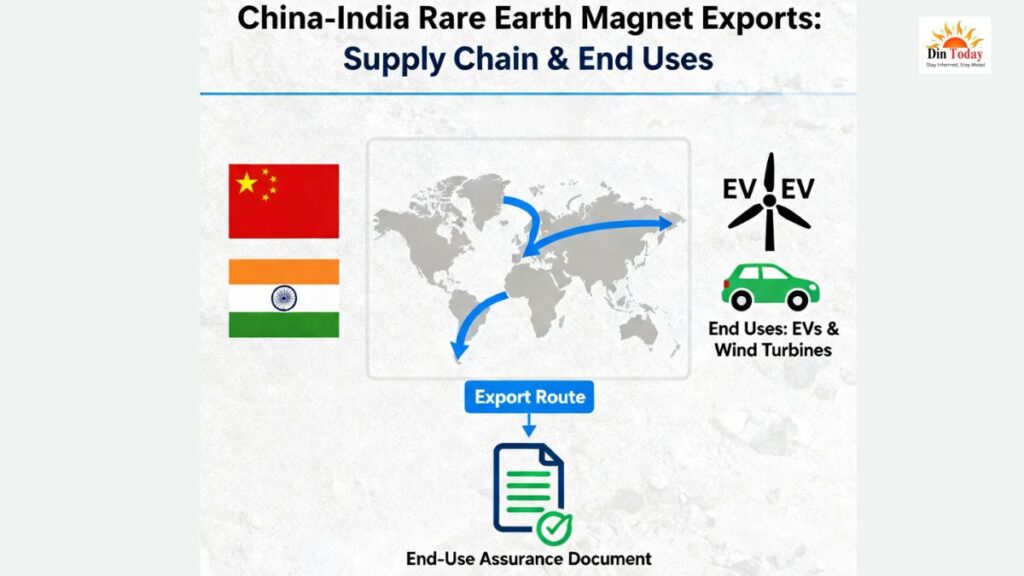New Delhi — In a new development amid global trade tensions, China has asked India to provide a formal assurance that rare earth magnets imported from Beijing will not be re-exported to any third country, especially the United States, and will be used only for domestic purposes.

🌏 Background: Why It Matters
China is the world’s largest producer and supplier of rare earth elements — materials essential for electric vehicles (EVs), wind turbines, electronics, and defense technologies. These magnets play a vital role in India’s fast-growing EV and renewable energy sectors.
In recent months, Beijing has tightened export controls over these materials, citing national security concerns and supply chain protection. This move comes as several countries, including India, seek to reduce their dependency on Chinese supplies.
⚙️ China’s New Export Condition
According to reports from the Times of India and Economic Times, Beijing now demands that Indian companies provide end-use certificates and a written guarantee confirming that these rare earth magnets:
- Will not be re-exported to other nations,
- Will not be used for defense or strategic projects, and
- Will be utilized only for domestic industrial purposes.
While some Indian firms have already submitted such certificates, China is seeking stronger, binding commitments before resuming full-scale exports of heavy rare earth magnets.
🇮🇳 Impact on Indian Industry
The delay in heavy magnet supplies is affecting multiple sectors, including:
- Electric vehicle and battery manufacturing,
- Electronics and consumer goods,
- Renewable energy projects, and
- Defense production.
India currently depends on China for over 85% of its rare earth magnet requirements. To counter this, the Indian government is exploring domestic production incentives and partnerships with Japan and Australia to diversify sources.
🔍 Geopolitical Angle
Experts believe this latest move is part of China’s broader strategy to maintain control over the rare earth supply chain — a critical tool in modern technological geopolitics.
By seeking written guarantees, Beijing aims to limit indirect support to US industries amid ongoing trade and tech rivalries.
India, meanwhile, must balance strategic autonomy with industrial supply needs, ensuring that its manufacturing ecosystem does not suffer while maintaining independent trade policy.
🗣️ Official Sources
“We seek end-use assurances from India to prevent diversion of rare earth materials,” a Chinese trade representative was quoted as saying by Times of India.
The Indian Ministry of Commerce has not yet issued an official statement but continues to engage with Chinese authorities to ensure uninterrupted material flow to key industries.
📈 Conclusion
The China-India rare earth standoff highlights how critical minerals have become the new oil of the global economy.
As nations push for cleaner energy and high-tech manufacturing, control over these minerals could shape the next phase of international trade and diplomacy.
🔗 Source Credits
Based on reports from Times of India, Economic Times, Reuters, and Financial Times.
See other news on dintoday.com
Discover more from
Subscribe to get the latest posts sent to your email.


